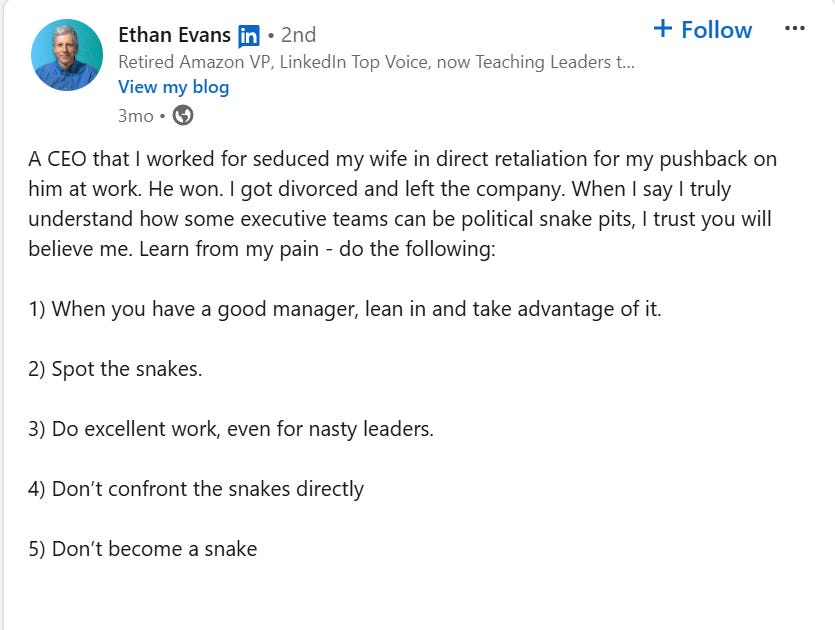"You can make more friends in two months by becoming interested in other people than you can in two years by trying to get other people interested in you." Dale Carnegie — How to Make Friends and Influence People
It’s approaching a century since Dale Carnegie published “How to Make Friends and Influence People”. Lauded as the roadmap to being a likeable human being, HMFIP was well received by critics and has sold more than 30 millions of copies. Despite being one of the of the most successful self-help books all of time, few people have internalized Carnegie’s advice.
Loneliness is an epidemic; a 2020 report from Harvard University revealed that 36% of Americans experience "serious loneliness," with higher rates among young adults (61%). Even before the Pandemic, loneliness was a growing problem, that has been blamed on everything from social media, video games, dating apps to even capitalism. Perhaps they are to blame, but if you are having a difficult time making friends/connecting with people, it likely has more to do with your actions.
Instead of trying to decide what gift to buy your work wife/husband for secret Santa, here are a few maxims to include in your social interactions to ensure you are likable or at least not the most detestable person in 2025.
If this week’s article does not interest you, please check out some other recent ones:
The world needs another Ben Franklin
The Most Obvious Secret to Success
Advice to Not Suck in 2025
Don’t be tardy
Showing up consistently late to things is an easy way to alienate people. Whether it’s a work meeting, job interview, golf round, date or even a routine oil change, it reflects poorly to keep people waiting. Your lateness is signaling that you have poor time management or you believe your time is more valuable than other peoples.
People have different definitions on what they constitute as being late There is late and there is late. There is also a cultural component to this as well. Being late in Germany might mean 30 seconds after the start time, in Spain, it could be half an hour. Naturally, you should adjust your arrival time based on the audience you are meeting with but as a safe rule, for social gatherings, you have a 10% grace period for which you can show up without your lateness being considered rude.
The longer the meeting/engagement, the longer the grace period. If you are meeting for a 30 minute coffee chat, you should not be more than 3 minutes late, for an hour long meeting, this climbs to 6 minutes. If you are meeting a group that cannot start without you (restaurant, golf round or arm wrestling tournament), you should cap this at around 10 minutes1. If you are meeting somebody at their place, or there is nothing preventing them from having a good time without you, the grace period can be extended.
In professional settings you should generally not be late for meetings. If this is going to happen, you have 2 minutes after the meeting start time, to send an alert to the other meeting participants that you will be delayed. If you do not send such an alert, if nobody hears from you after 5 minutes, it is fair for the other person to assume the meeting is cancelled. If you do send a notification, you have until 10 minutes from the original start time of the meeting, until the other participants can count you out.
On the other side, don’t show up ridiculously early to things. It’s weird to be hanging out in the Zoom waiting room 10 minutes before the meeting. If somebody is having a party, do not show up 30 minutes before the start time, unless they ask for your assistance. Do not pull a Michael Scott.
(Skip to 1:30)
Ask open ended questions.
Look, most conversations aren’t going to feel like a TED Talk. That’s life. But if every chat you have leaves you yearning for the sweet release of silence, maybe the problem isn’t them. Sure, some people are human Wikipedia pages—brimming with fun facts, anecdotes, and unsolicited trivia about octopus mating habits. In those cases, all you have to do is let them cook. Sit back, sprinkle in a few “No way!”s, and enjoy the show. But not everyone is preloaded with conversation gold. Sometimes, you’ve got to dig a little deeper, play Medici and discover their inner Da Vinci.
Instead of defaulting to zombie questions like, “So, how’s it going?” (to which the answer is inevitably “Fine”), ask something that snaps them out of autopilot. Try something like, “If the rule you followed brought you to this, of what use was that rule?” Is it a bit weird? Sure. But it gets results. Before you know it, you are deciding their fate based on a coin toss. Now that’s a conversation worth remembering.
Pro tip: be genuinely curious. People can smell fake interest and it’s unpleasant. So, laugh at their jokes (even if they aren’t funny), and find out what lights them up. The secret sauce of great conversations isn’t about dazzling them with your wit; it’s about making them feel like the most fascinating person in the room. And who knows? By asking good questions, you might actually find them interesting, or at least, they’ll think you are. While engaged in a conversation, make sure not to interrupt people; it’s off-putting. Even if you have ADHD and think you know what the person is going to say, allow them to finish speaking before jumping in.
3. Do not sleep with your employees spouse
Carnegie did not cover this in HTFIP, but if your goal is to be liked or respected, it is generally best practice to avoid sleeping with somebodies spouse. Most agree you should not do this to a friend or close acquaintance, but even if somebody works for you, it is still not okay to do this. If you missed the memo, prima nocta (also known as Droit du seigneur) has been largely phased out these past few centuries.
One would think that this lesson would be self evident, but a Linkedin influencer caused a stir earlier this year when he revealed that a CEO he worked for, slept with his wife as payback for contradicting them. While I can acknowledge that it’s infuriating when a colleague or subordinate does not immediately follow your directives, this does not feel like the appropriate reaction. If you want people to listen to you, invest the appropriate amount of time creating alignment behind your vision and trust. If you consistently show that your decision making leads to optimal outcomes, they will eventually learn to respect your judgement.
It’s fashionable to embrace ones villain arc, but I suggest reserving this to activities such as fighting Superman, eradicating the population of Gotham or eliminating half of live in the universe. If your goal is to not alienate people or avoid sucking in 2025, I would avoid sleeping with people’s spouses. Especially if they work for you.
(Am I the only one wondering which CEO this was?)
Don’t bring up politics or taboo topics
Conversations are for connection, not confrontation. Topics like politics, religion, or personal beliefs often evoke strong emotions and can quickly derail an otherwise positive interaction. While meaningful in the right context, they’re rarely helpful for building rapport with someone new.
Instead, focus on shared experiences or interests, areas that bring people together. Like building a camp fire, you need to progress from small talk, to medium talk. If you start with a very heavy topic too early, you could smother the fire of what could be a promising relationship.
If sensitive subjects come up, listen thoughtfully and respond with curiosity, not debate. A simple “That’s an interesting perspective—how did you come to that conclusion?” can keep things open without creating tension.
Borat appeared to not get the memo.
5. If the beacons are lit, accept the call
The true test of friendship is showing up when it matters most. Being a friend during good times is easy, it requires little effort and no sacrifice. But until a friendship is tested, you can’t truly know its depth or authenticity. This is why time often strengthens friendships; the longer you’ve known someone, the more opportunities you’ve had to prove your commitment.
That said, meaningful actions can accelerate closeness. If you show up for someone in a significant way early on, you might forge a bond stronger than with someone you’ve known for years but have never had to rely on or inconvenience for support. True friendship is about effort, not just time. There is no better example of friendship than when Rohan lifted the siege of Gondor.
Despite having only recently fought off a force of thousands of Uruk-hai at the Battle of Helms Deep, King Théoden immediately accepted the call, mustering all of the troops that he could. After riding cross country for nearly a week, the riders of Rohan arrived at the Pelennor Fields, to see the men of Gondor demoralized and their walls nearly breached. Without taking a moment to gather themselves, Théoden roused the riders with a riveting speech, which ended with them chanting death as they charged head first into an army of Orcs, Elephants and Nazgul riding fell beasts.
People willing to do those things don’t suck. If you want to steer clear of the growing epidemic of loneliness, here’s a simple formula: show up on time, ask thoughtful open-ended questions, stay far away from your employees’ spouses, avoid divisive topics like politics, and, most importantly, be there for your friends when it matters.
This should be the standard you aspire to in 2025.
I hope you enjoyed today’s article. Please Subscribe or Share other things people can do to not suck in 2025.
Do not show up 10 minutes after your golf tee time, this is an easy way to ensure you will not get invited back.







I think when books become canonical enough, people assume they know everything in those books. This is one of those for me. Good writeup
Thank you for the support @Javier manly